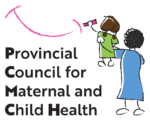Social determinants of health, and how they overlap (also known as intersections), affect the health of individuals, groups and communities in many different ways. Health inequity often impacts people from racial and ethnic minority groups; however, people are socially disadvantaged for many reasons aside from race and ethnicity. For example, this may be based on their age, economic status, gender, gender identity, medical and/or mental health condition, nationality, religion and sexual orientation. All of these factors, both on their own and if they overlap, can greatly influence a patient and family’s unique needs, expectations and responses to the care received, their access to services, the supports that are available and how care is managed.
Health equity is achieved by removing unfair and avoidable barriers that compromise health and well-being. Addressing anti-Indigenous and anti-Black racism, and other forms of systemic oppression that disproportionally affect the health of equity-seeking groups, is something PCMCH considers critical to ensuring health equity.
